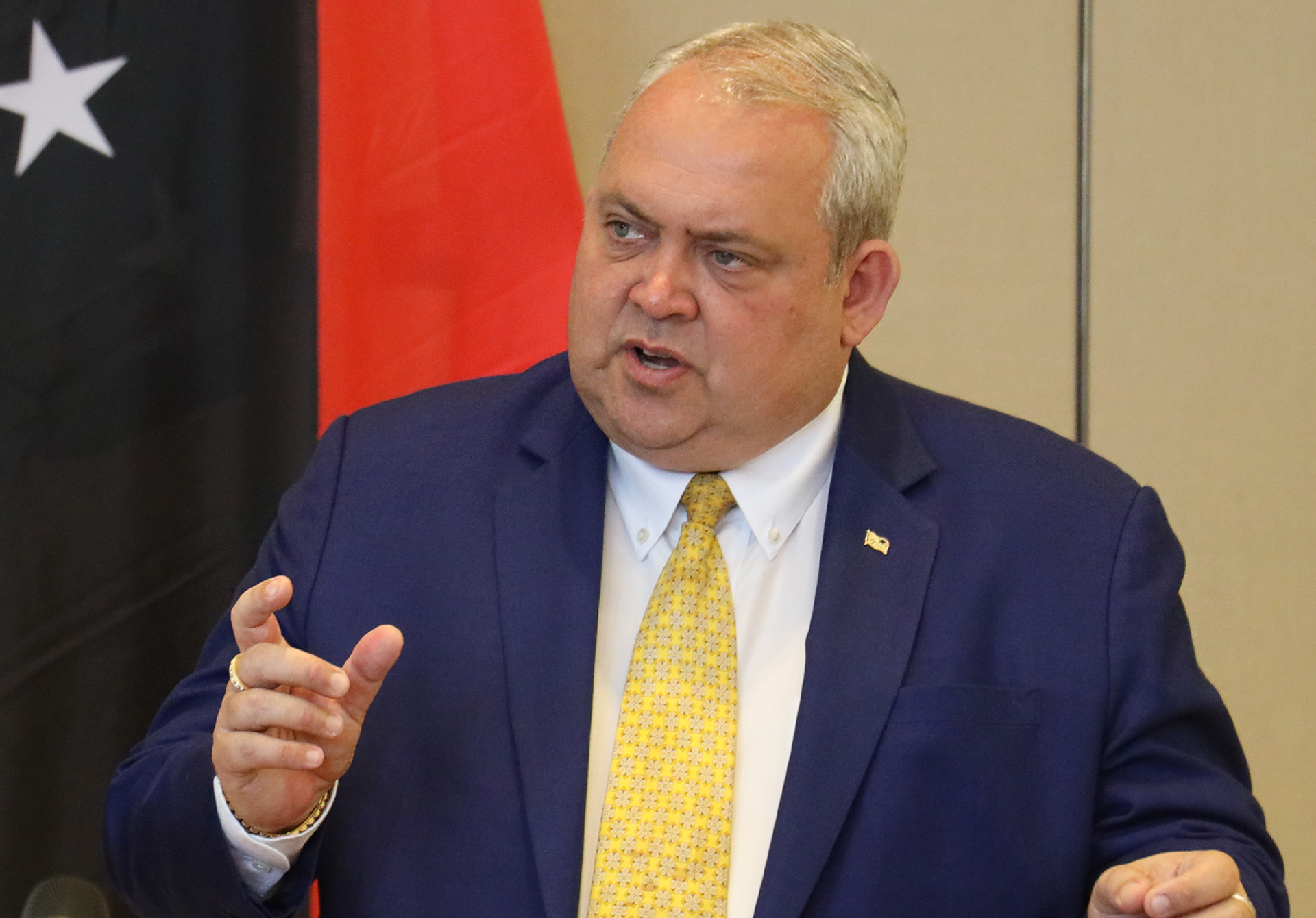Friday 27 September 2024
Papua New Guinea will continue to stand with the Pacific nations for a collective Pacific voice against the consequences of nuclear testing in the region, says Minister for Foreign Affairs Hon. Justin Tkatchenko.
Speaking at the 11th Ministerial Meeting of the Friends of the Comprehensive Nuclear Test Ban Treaty (CTBT) in New York on Thursday 26 September, Minister Tkatchenko urged the Pacific neighbours who are yet to ratify the CTBT to make a commitment for their people and the region.
“As the region most affected by the negative consequences of nuclear testing, it is important that the Pacific neighbors who are yet to ratify the CTBT to do so as a commitment to our people and region.
“I reflect on the words of my good Prime Minister, Hon James Marape that we cannot deny “the fact that nuclear weapons buildup continues in the world today nor should we anticipate a total nuclear-free world in a few centuries ahead, knowing the enormous quantity already possessed by countries around the world today”.
Minister Tkatchenko stated that Papua New Guinea’s efforts to contribute towards more controlled and safer alternative use of nuclear weapons was solidified recently when it ratified the Comprehensive Nuclear Test-Ban Treaty on 13 March 2024.
“We also reaffirm our commitment to the Treaty of Rarotonga and will continue to stand with the Pacific nations for a collective Pacific voice against the consequences of nuclear testing in our region and the rest of the world to build a resilient and nuclear-free Pacific community.”
“We need not go further than the Pacific to understand adverse impact of nuclear weapons.”
Minister Tkatchenko said the Moruroa Atolls testing, the 20th century North Korean nuclear test explosions, and although not a nuclear weapon; the Fukushima nuclear reactor meltdown incident on 11 March 2011, clearly demonstrated a need for coordinated efforts for safeguarding the health and sustainability of the environment, livelihoods and protection of the sovereignty.
“Our region and ocean have been and continues to be on the receiving end of the consequences of actions we are neither a part of nor benefit from in any way except the negative adverse effects of destructive actions that impact on our communities’ livelihoods for years to come,” he added.
“Nuclear testing has affected our region and oceans as do the effects of plastic wastes, industrial and urbanization dumping, maritime transportation, and nuclear accidents.
“The ocean is a fluid environment but our plight is unique from the Caribbean and Americas because the ocean is our life, our identity and it defines our sovereignty.
“And we risk losing all yet we have no way of stopping what’s happening to us.”
“Let us stand united to promote a nuclear free world,” Minister Tkatchenko said.

